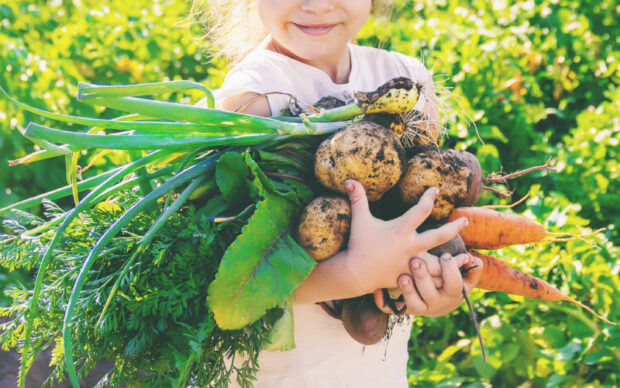
If you have a green thumb, then you might already know about the joy and satisfaction of growing crops, veggies, and fruits by yourself in your garden, getting your hands dirty, digging up soil, planting the seeds, nurturing them carefully every day, and by the time harvest comes, enjoying the fruit of your labor. Much we can learn from gardening, be it as a hobby or even with the prospect of earning a bit extra money.
In recent years, there has been a surge in demand for 100% organic foods and plants, due to more people realizing the benefits and the dire need for healthy diets in their lives. These make recent surges of increasing organic and healthy foods become more popular, and people even start to grow their foods in their gardens and try out the do-it-yourself project of gardening.
This time, we are going to tell you everything you need to know about how to grow thriving and plentiful organic gardens at home. Our guide here is suitable for everyone, including amateurs who have never tried gardening and some experts from whom you might learn something new today about gardening.
Here Are a Few Tips On How To Grow An Organic Garden At Home
An organic garden is a type of garden that allows you to have healthy, tastier, and pesticide-free vegetables, fruits, and crops that your family can enjoy at home at any time. An organic garden is pretty much the same as how you do garden or tend crops, minus the usage of any chemical compounds or pesticide itself.
Therefore, here are a few ways how you could grow a thriving, organic garden, so you and your family could enjoy healthy veggies and fruits at any time.
Make sure you have plenty of sun and space
First of all, the garden needs at least 6 to 10 hours of daylight, preferably more than that. As well as space that you can use to plant seeds and grow your crops.
Good soil quality is suitable for crops
There are a few important factors about soil quality, such as pH level, alkalinity level, and many more. The type of soil also influences the types of seeds that can be grown.
Water source
This is important, as you will water your garden every time and hence need a constant water source. You can also save some water by choosing drought-resistant crops or better water management.
Suitable types of vegetables and fruits to seed
Different climates, types of soil, and spaces allow you to have different vegetables and fruits that are suitable for your garden. Make sure you understand each different type of seed, what they need, and how you would take care of them.
For an organic garden, our recommendation is tomato, carrot, eggplant, chili, potato, and herbs such as mint, thyme, oregano, basil, and many more. We will talk about it further.
How You Fertilize Your Garden
Start by using organic fertilizers, and try to use mulch. Organic garden fertilizers such as mulch and rotten vegetables and fruits could become fertilizer for your home, and if you have access to rotted manure such as chicken or rabbit manure, it could be used for garden fertilizers too.
Spend your time in the garden
Spend your time managing, designing, and tending to your garden. Spend time shopping for the best-quality seedlings. When choosing seedlings, try to avoid any plants that have specks of white or yellow in their leaves.
Spend your time also managing water in your garden. If you live in a state or country that allows you to store rainwater, you can store it for use later in your garden. If you have to go without water due to the climate, you can also opt for a better irrigation system.
Types of crops that are suitable for an organic garden
We start with tomatoes. This fruit (although many people know it as a vegetable) is one of the easiest and probably has the most plentiful fruits per harvest season. It could also be grown on a trellis, so you can make better and more beautiful gardens with it.
Next is eggplant. These simple but very versatile veggies are very easy to grow and quite resilient with the bugs, allowing you to have an easier time tending them.
Carrots are also a good choice, although you will need a suitable, more intensive organic fertilizer for them. There is also radish, potato, bitter gourd, berries, and a few herbs in the garden that you could choose from.
If you’d like more information about how to live healthily, living the best life while making sure you and your family get what is best for them, then you’ll find it here at Healthymeaning.com. Everything about living a healthy lifestyle, organic vegetable gardening, and more. See also our other article here related to how you would like to design your course meals with organic foods.


